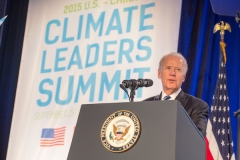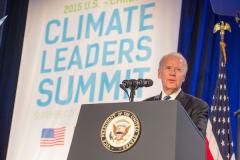
(Getty Images)
(CNS News) — Although the Biden administration has essentially declared war on the oil and gas industry and proposes spending trillions of dollars on “green” energy to fight “climate change,” a new national survey shows that only 4% of American adults view “climate change/environment” as the “most important problem facing the country.”
In the survey conducted (Nov. 11-15) by Quinnipiac University, Americans were asked, “What do you think is the most important problem facing the country today?”
In response, 10% said the economy, and fewer named economy-related topics: inflation/high cost of living (8%); labor shortage (2%); and supply chain/shortage of goods (1%).
(Quinnipiac University Poll)
Twenty-five percent of the adults surveyed said the most important problem was an economic one.
Some of the “net non-economic problems” cited by Americans as the most important included division/polarization (11%), immigration/border security (8%), COVID-19/coronavirus pandemic (5%), and racism/race relations (4%).
For climate change/environment, only 4% of Americans said it was “the most important problem facing the country today.”
(Quinnipiac University Poll)
As for social justice/inequality, only 1% of Americans said it was the most important problem facing the country.
Related to that question, Quinnipiac asked, “(If answered most important problem q7) Which party do you think would do the best job handling that problem: the Democratic party or the Republican party?”
In response, 46% said the Republican party and 35% said the Democratic party.
Quinnipiac also asked, “Do you approve or disapprove of the way Joe Biden is handling – the economy?”
(Quinnipiac University Poll)
In response, a total of 59% said disapprove and 34% said approve. Among independents, 66% said they disapprove and 23% said approve.
To read the entire survey, click here. (1,378 U.S. adults nationwide were surveyed from November 11th – 15th with a margin of error of +/- 2.6 percentage points.)

